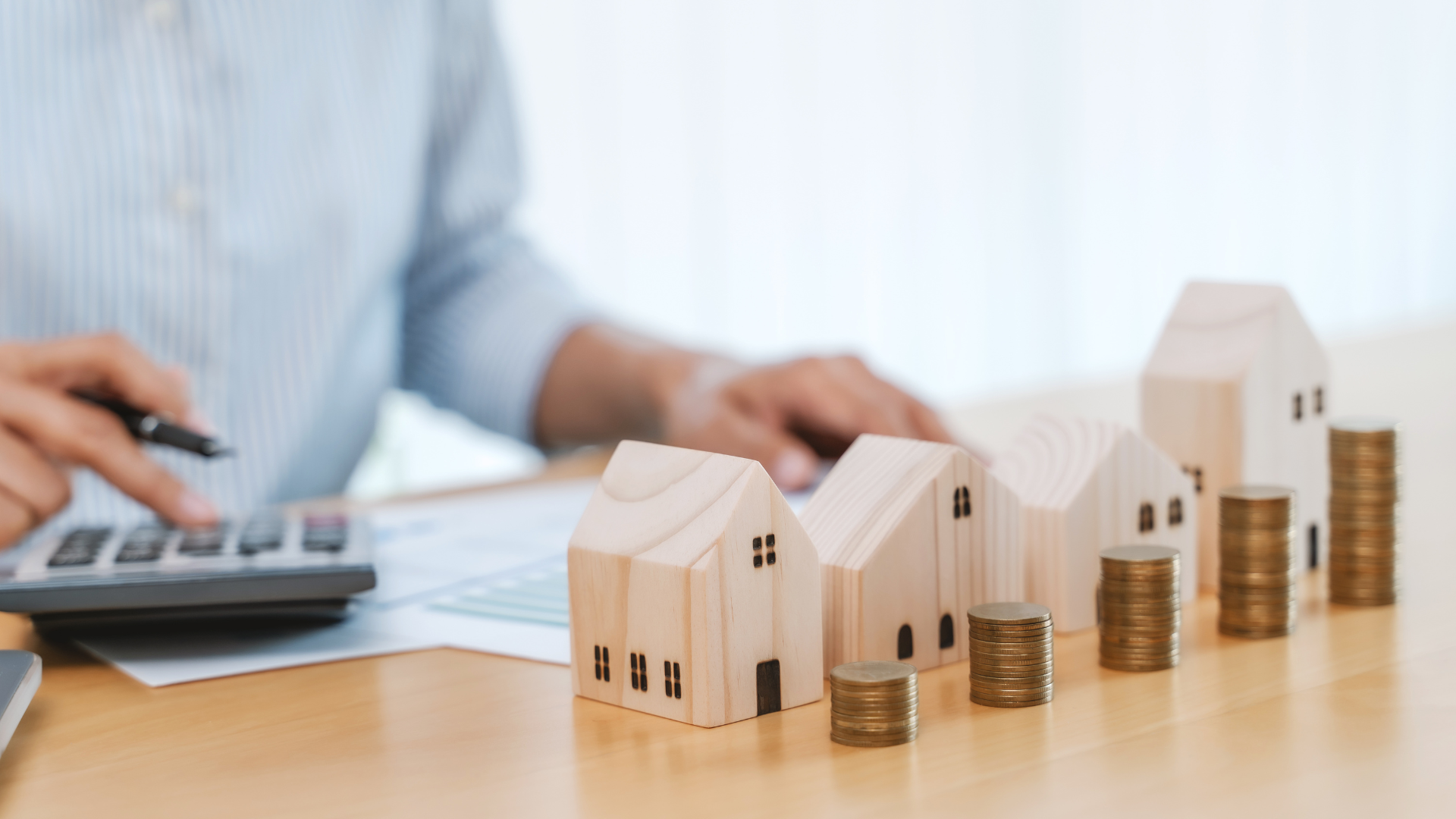When buying or selling a property in Australia, property valuations are a crucial part of the process.
Property valuation is all about determining the current market value of a property. This knowledge gives you the confidence you need when making property decisions.
Take a closer look at our article to learn more what is property valuation and when you might need one.

Table of Contents
When Do You Need Property Valuations?
When might property valuations be necessary? There are several scenarios that call for a property valuation:
- Before selling or buying: If you’re thinking about selling your property or buying a new one, getting a valuation can help you figure out a fair selling price or offer.
- Refinancing: When you’re looking to refinance your mortgage, you might need a valuation to determine your property’s current value. This information can impact the terms and interest rates of your loan..
- Investment analysis: If you’re thinking about investing in properties, valuations provide crucial information for assessing potential returns on your investment.

Understanding How Property Valuation Works
Property valuation in Australia is a thorough process that takes into account a wide range of factors affecting a property’s value.
1. Location Matters
Given Australia’s diverse and sprawling landscapes, location emerges as a paramount factor. Proximity to essential amenities, transport hubs, reputable schools, and local services is a significant determinant of a property’s valuation. Locations with positive growth trends, with high rental yield and attracting a high population, are more likely to attract buyers and tenants, resulting in higher property values and rental rates.
2. Supply and Demand
Just like stocks and bonds, property prices are strongly influenced by the interplay of supply and demand. When a significant number of buyers are keen on purchasing properties in a specific area, it typically leads to an increase in house prices in that neighbourhood, driven by the competition among buyers. Conversely, when there’s an abundance of available properties in a neighbourhood and limited demand, property prices tend to decrease. This also affects your property valuation.
3. Property Size and Condition
A property’s size and its characteristics are key factors that affect property valuation. For instance, a four-bedroom house typically commands a higher price than a two-bedroom house in the same location.
Additionally, amenities such as extra bathrooms, garages, swimming pools, and outdoor entertaining areas can all contribute to a property’s overall value. In bustling urban areas, the availability of parking spaces is another significant consideration, while the layout and practicality of a home’s design remain important factors.
4. Comparative Market Analysis
Valuers often examine recent sales of comparable properties in the same neighbourhood or vicinity to gauge market trends and arrive at an equitable valuation.
Population dynamics are also essential. More people wanting to live in a suburb increases property demand. The composition of the local population influences property values, with demographics like young families favouring larger houses over smaller apartments. Increased immigration contributes to higher demand and rising property prices.
5. Economic Outlook
The ever-evolving nature of the Australian real estate market is taken into account, encompassing economic outlook, prevailing interest rates, and the broader economic climate.
The broader state of the economy can influence the real estate market as well. In times of robust economic growth, improved employment conditions mean more Australians can afford to buy property, leading to an increase in property values.
Additionally, changes in the Reserve Bank’s monetary policy can impact property values. Low-interest rates make borrowing money more affordable, often resulting in higher property prices because people can stretch their budgets by borrowing more.
Conversely, if interest rates rise, borrowing becomes more expensive. This can decelerate property price growth and compel borrowers to be more budget-conscious.

The Importance of Property Valuations
Recognising the significance of property valuations is pivotal for a myriad of real estate scenarios:
1. Refinancing Considerations
If you want to pay less interest on your mortgage, a property valuation is essential when you refinance. It helps you figure out how much equity you have, and you can use this information with your current lender or a new one to get a better deal.
2. Informed Investment Choices
If you don’t have enough saved for a deposit to buy another home, you can use the equity in your current property. The valuation tells you how much equity you have to use for the deposit. If the property market has gone up, you might be in a better position to buy a second property.
3. Tax and Financial Planning
Property valuations play a pivotal role in various financial aspects. They help determine stamp duty costs when transferring property between owners and ownership entities like trusts.
Moreover, property valuations are essential when dealing with capital gains, as the Australian Taxation Office (ATO) may require their use in calculating the capital gains associated with the sale of an investment property. These evaluations ensure that you meet your tax obligations accurately and fairly.
The Role of Professional Valuers
Property valuations are typically conducted by certified and qualified property valuers. These professionals may work independently or as part of a team employed by banks and lenders.
When seeking an independent valuer, it’s essential to verify their registration as a Certified Practising Valuer (CPV) and confirm their membership with the Australian Property Institute for assurance of their expertise and credibility.
FAQ
1. What is a property valuation?
Property valuation is the process of determining the market value of a property, typically done by a licensed and certified valuer. The market value is an estimate of the property’s worth in the current market conditions. It takes into account various factors such as the property’s location, size, condition, and recent comparable sales in the area. Property valuations are essential for various purposes, including buying or selling property, refinancing, property tax assessments, and insurance purposes.
2. How to get a property valuation?
In Australia, you can obtain a property valuation through a licensed and accredited valuer or a professional valuation firm. You can hire them directly or through a real estate agent. They will inspect the property, analyse market data, and provide you with a written valuation report. To ensure their qualifications and expertise, It’s important to ensure that the valuer is accredited by one of the following qualifications:
- full member of the Australian Valuers Institute (not an associate or student member)
- full member of the Australian Property Institute (not a student or provisional member), obtained because of their occupation as a valuer
- full member of the Royal Institution of Chartered Surveyors as a chartered valuer.
3. How much does a property valuation cost?
The cost of a property valuation in Australia can vary depending on factors such as the location and complexity of the property. On average, a basic valuation can cost between $300 to $600, but prices may go higher for more complex or unique properties. It’s advisable to obtain quotes from several valuers or firms to compare prices and services.

4. How long does a property valuation take?
The time it takes to complete a property valuation can vary, but typically it takes anywhere from a few days to a few weeks. The timeline can be influenced by factors like the availability of the valuer, the complexity of the property, and the demand in the local market. If you need a valuation urgently, you can discuss this with the valuer or firm during the hiring process.
5. What happens after property valuation?
After the property valuation is completed, you will receive a valuation report that includes the estimated market value of the property. This report is valuable for various purposes, such as negotiating property prices, securing loans, or determining property tax obligations. You can use the valuation report to make informed decisions related to your property.
6. How do banks do property valuations?
Banks in Australia use property valuations to assess the value of the property being used as collateral for a mortgage or loan. They typically hire independent valuers to conduct the valuation. The bank may choose from a panel of accredited valuers. The cost of the valuation is usually borne by the borrower. The valuation report helps the bank determine the property’s value to make informed lending decisions, including the loan amount and terms. It’s important to note that the bank’s valuation may not always align with the property’s sale price or an owner’s perception of its value.
Bottom Line
In the complex tapestry of Australian real estate, property valuations stand as robust pillars of accuracy and fairness. Whether you’re embarking on a property transaction, aiming to optimise your investment strategy, or seeking clarity on your property’s value, a profound comprehension of property valuations empowers you to make informed choices.
As the real estate landscape continues to evolve, property valuations remain steadfast in their role as guiding lights, steering you toward well-founded decisions aligned with the true essence and value of your property.




